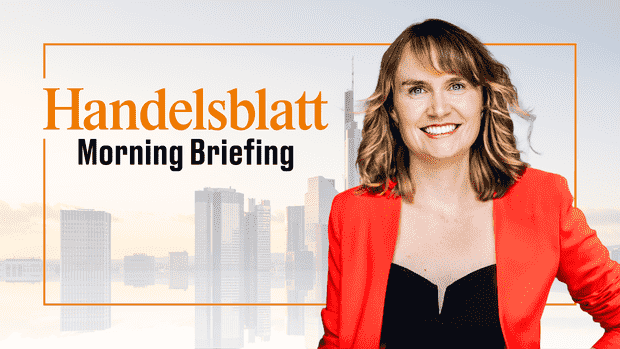in these times, when geostrategic thinking in spheres of influence is back, it is worth taking a look at the power of images. The length of a table, for example, is a fairly reliable indicator of the relationship between two heads of state. At the meeting of the Shanghai Cooperation (SCO), which is taking place these days in Samarkand, Uzbekistan, the visual indicators are at least as important as the verbal ones.
When Russia’s President Vladimir Putin and China’s President Xi Jinping met yesterday, they sat with their respective delegations around a structure that resembled a very large coffin. The question arises as to what the two gentlemen symbolically buried there. It was probably the old world order.
Because the heads of state underlined the impression of a new bilateral axis in Samarkand. Xi and Putin backed each other, blaming “the West” for the escalation of the conflicts they provoked in their respective neighborhoods. What at first glance looks like a classic case of “The enemy of my enemy is my friend” is, at second glance, a multi-layered alliance with divergent interests.
Top jobs of the day
Find the best jobs now and
be notified by email.
Economically in particular, the two countries are by no means on an equal footing. China’s GDP is ten times that of Russia. Shortly after the Russian invasion of Ukraine, China took the opportunity to stock up on cheap oil, coal and gas from Russia. There are also calls for preferential treatment for Chinese investors, for example in infrastructure projects in Russia.
So it seems that Xi is Putin’s last great ally on the international stage. For Xi, on the other hand, Putin is primarily an opportunity to advance the new Silk Road project and to obtain raw materials. You can read all the background information on the new Moscow-Beijing axis in our weekend title.
As Putin deepens his alliance with China, Europe fears a cold winter without Russian gas. In the Handelsblatt, EU foreign policy chief Josep Borrell expresses his confidence that the EU’s current strategy in the conflict with Russia is having an effect.
Borrell is convinced that Putin miscalculated his attack on Ukraine. Russia’s president assumed the EU would be too divided and dependent on Russian gas to act. Instead, the sanctions, along with massive economic and military support for Ukraine, would ultimately help defeat the Russian aggressor.
Borrell’s words sound a lot like a rallying cry in the European autumn. One is inclined to call out to him: Josep, your word in God’s ear!
(Photo: ddp)
All the same, former US General Wesley Clark gave an optimistic answer when asked whether the West would continue to hold together even in a cold winter. European leaders were quick to voice concerns and doubts that this gave totalitarian rulers like Putin the impression that the West was weak. “But it’s actually a sign of the resilience of democracies,” says Clark.
In the current situation, the long-serving US general therefore advises Putin to withdraw, keep what he has and seek a new paradigm for Russia’s relationship with the world. Because, Clark is convinced: “Russia is currently losing and will continue to lose.”
The Hamburg private bank MM Warburg meanwhile has the problem that it cannot get rid of employees who are allegedly involved in the Cum-Ex tax fraud scandal. The largest known tax robbery in the history of the Federal Republic of Germany caused damage estimated at around 36 billion euros. The Warburg-Bank had also carried out cum-ex transactions.
Today, the bank admits that the “tax assessment of the cum-ex transactions” has “proved to be wrong” – but the personnel consequences of this have not yet been drawn in Hamburg. Apparently, the bank continues to employ people who are said to have been involved in the business.
The problem: Actually, the urgent suspicion of tax evasion can justify an extraordinary dismissal. However, if the management itself was aware of the illegal activities, it is more difficult to get rid of the employees. After all, nobody should be punished for following the rules of their own house – even if they meant cheating the German state out of a large sum of money.
(Photo: IMAGO/photothek)
At first glance, the German state is quite generous with its money towards all of us. Relief package follows relief package. Or so it seems. However, the overall calculation of burdens also means that the relief caused by burdens is partially nullified. But the federal government hardly ever talks about it publicly.
Half of the large tax cuts are eaten up again by rising social security contributions. Above all, employees with higher incomes will have to adjust to additional payments of over 600 euros in the next year. When calculating the profit and loss for your own wallet, these new costs should definitely be taken into account. My colleagues in Berlin have researched who has to reckon with which social security contributions.
And then there is the current Berlin Art Week with its amazing installations. If you are still looking for cultural input for the next few days, I can recommend visiting the Berlin Art Week. There you can be convinced by the thesis I put forward at the beginning that world politics is also something for the eye. Topics such as the climate crisis, global greed or the oppression of women are artistically staged in the capital.
If that’s too much for your head and not enough for your stomach, attending an edible performance would also be an option. According to the program, a journey through the aromas lures you. After all, the love of art also goes through the stomach, how could it be otherwise.
I wish you an inspired start to the day,
Her
Teresa Stiens
Editor of the Handelsblatt
You can subscribe to the Morning Briefing here:
